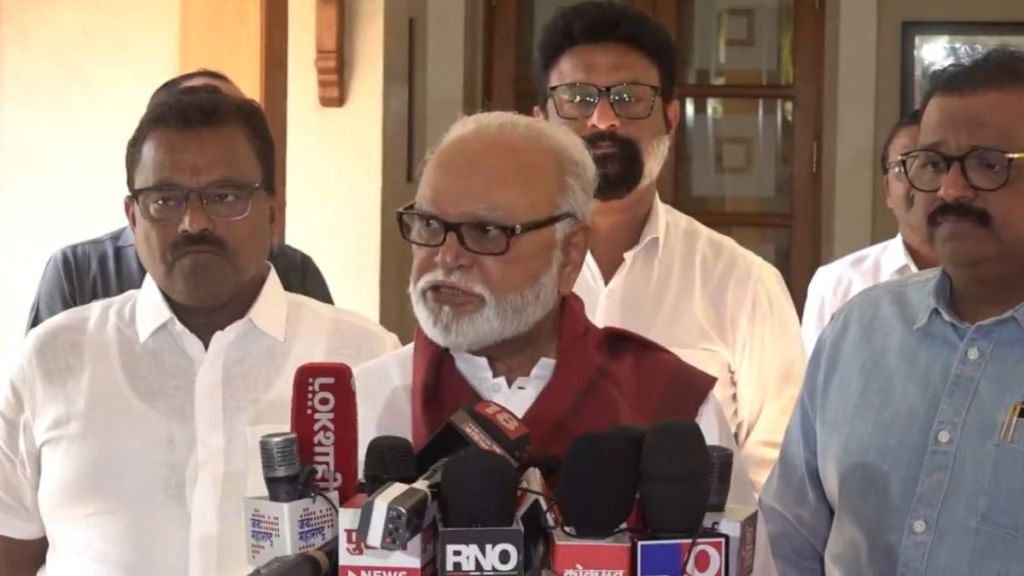
The current political scenario in Maharashtra is nothing to be proud of. The past few days have witnessed events that would make any resident of the state feel pained.
The present Mahayuti government in the state, comprising the Bharatiya Janata Party, Shiv Sena (Shinde), and Nationalist Congress Party (Ajit Pawar), initially failed to form a government in a reasonable time. Later, it struggled to allocate portfolios to ministers, who were sworn in only after apparent haggling over who should be included in the cabinet and who should not.
Though, in a coalition government, the leadership of the constituent parties has the right to select members for ministerial appointments, the Chief Minister has the final say in the team’s selection.
The exclusion of Chhagan Bhujbal, a veteran politician in the state, from the Cabinet has shocked many of his supporters. However, this should not come as a surprise to political analysts, as the decision seems to be a mix of the Bharatiya Janata Party’s anti-Dalit/anti-backward class stance and its history of politically sidelining individuals and parties that form alliances with it.
Bhujbal, an engineer by qualification, is recognized as the leader of the backward class in the state and has a following in some other states as well. He has held important political posts, including being the mayor of Mumbai, and holding several portfolios in the state cabinet, including Home Minister and Deputy Chief Minister.
He is probably the only person to have served in ministries led by Shiv Sena (before the split), Shiv Sena (Shinde), BJP, and Congress. He has changed political affiliations several times, starting his career with Shiv Sena, then joining Congress, the Nationalist Congress Party, and after the split, aligning with Ajit Pawar.
Bhujbal has always been an asset to the political parties he belonged to and to the Mahayuti, as he could attract votes from the Other Backward Class. He was also the only leader to openly challenge Maratha leader Manoj Jarange, who has been fighting for reservation for the Maratha community.
It would not be an exaggeration to say that the BJP and Shinde Shiv Sena made tremendous political gains in the last legislative assembly elections, with Bhujbal on their side.
Political parties are known for their "use and throw" approach, with the BJP leading in this practice. Given the size of the OBC population in Maharashtra and India, Bhujbal was becoming increasingly popular and gaining more followers in the state. This made him a leader stronger than Ajit Pawar, the national president of his political party. By all standards, Bhujbal is a good orator and connects easily with audiences, unlike Ajit Pawar, who is often seen as arrogant.
By doing so, Bhujbal violated a key rule from the book 40 Laws of Power: never become more popular or bigger than your leader. He paid the price by being excluded from the cabinet.
It is likely that pressure from the BJP national leadership led to Bhujbal’s denial of a ministerial berth, given his rising popularity. Ajit Pawar, who had once projected himself as a dynamic and bold leader willing to take any political step, has now mellowed before BJP leadership, especially Amit Shah, with whom he has had several meetings in the recent past.
Bhujbal has openly spoken out against the treatment he received from the NCP and has yet to announce his future course of action. Having been through various political parties where he was never number one, it would not be surprising to see him launch a new political party, where he would be the leader.
His statements after the denial of a cabinet berth can be seen as the foundation for launching his own political party. He has appealed to his supporters not to burn effigies of NCP leaders or pelt their photographs with slippers, a common form of protest these days. He has also urged them to avoid violent acts. Bhujbal has stated that he is neither against Marathas nor against reservation for the community.
He has also received calls and messages of support from other states and parts of Maharashtra. These are clear signals that he may announce a broad-based political party, which will also champion the cause of the other backward class.
While the political drama surrounding Bhujbal was unfolding, the state witnessed the gruesome murder of Sarpanch Santosh Panditrao Deshmukh from Masasjog, Beed district. He was kidnapped and brutally murdered on December 9, with indescribable cruelty. The main accused, Vishnu Chate, an NCP (Ajit Pawar) activist, was arrested after being expelled from the party following the murder.
BJP legislator from Ashti, Suresh Dhas, mentioned in the legislature that the attackers of Deshmukh were in constant contact with an NCP leader during the attack, which lasted several hours, and even showed the leader a video of the assault. Dhas rightly demanded a thorough investigation into the murder and the identification of the NCP leader with whom the killers were in contact.
The author is a senior journalist and media trainer. He tweets at @a_mokashi